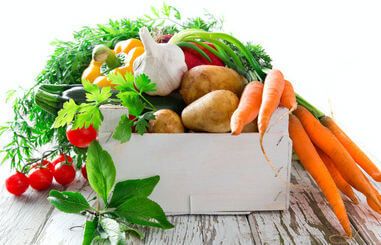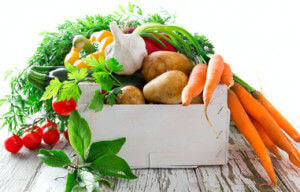
There’s a reason certain foods are called “comfort food.” Certain dishes remind us of certain periods in our lives or times of the year. Who doesn’t have a soft spot for apple-inspired treats in the fall, fresh-picked berries in the summer or a hardy stew just bursting with winter root vegetables?
There’s something just not right about blueberries in January, yet thanks to modern means of preservation and transportation most people don’t know what crops grow when. Eating what’s in season is vastly superior to the decadence of having what you want, when you want it for a number of important reasons.
Eating Seasonally Often Means Eating Locally
This isn’t true in all aspects, but realistically if you want an apple in October chances are it’s coming from a nearby orchard, not across the country or across the globe for that matter. Farmer’s markets are a great source for local seasonal produce. In one regard you are supporting the local economy and at the same time cutting down your carbon footprint. It takes a lot less energy to buy an apple from the same city than it does to get one across the ocean.
Local Produce is More Nutritious
From the second fruits and vegetables are harvested their nutritional value begins to wane. Registered Dietician Sue Baic notes that “the problem with some fruit and vegetables is that the vitamin content is depleted by light, temperature and time” and that “freshly picked fruit and vegetables will contain maximum nutrients.” And let’s not forget about the waxes, pesticides, fungicides and the like which are applied to keep that tomato actually looking like a tomato by the time it reaches store shelves.
Fresh Produce is Tastier
Most will argue that fresh produce is tastier. How could it not be when it comes directly from the source at the time of year it was meant to be grown? Produce shipped in from abroad is often picked too early and treated with a whole slew of different chemicals. And regulations on pesticide usage abroad may be less-stringent than in America (of course this depends on which country it comes from).
 Couple that with the fact that the FDA only inspects a very small amount of imported food products (somewhere between 1.5 and 2 percent) it’s hard to know what else you may be getting on that pear from thousands of miles away.
Couple that with the fact that the FDA only inspects a very small amount of imported food products (somewhere between 1.5 and 2 percent) it’s hard to know what else you may be getting on that pear from thousands of miles away.
The bottom line is that local seasonal produce is more nutritious, tastier and better for you and the environment. Keep in mind though that seasonal and local do not mean organic. Some local farmers may practice organic techniques but aren’t certified organic growers. When possible, question your farmer about his practices, especially if you are eating produce from the “dirty dozen”list.
-The Alternative Daily
Sources:
http://www.policyinnovations.org/ideas/briefings/data/local_global
http://www.nbcnews.com/id/44701433/ns/health-food_safety/t/flood-food-imported-us-only-percent-inspected/#.UjCPrn9Lrmt
http://www.organicauthority.com/health/3-tips-when-it-comes-to-eating-imported-fruits-and-vegetables.html
http://www.vitalityguideforwomen.com/10-reasons-to-buy-locally-sourced-food/

